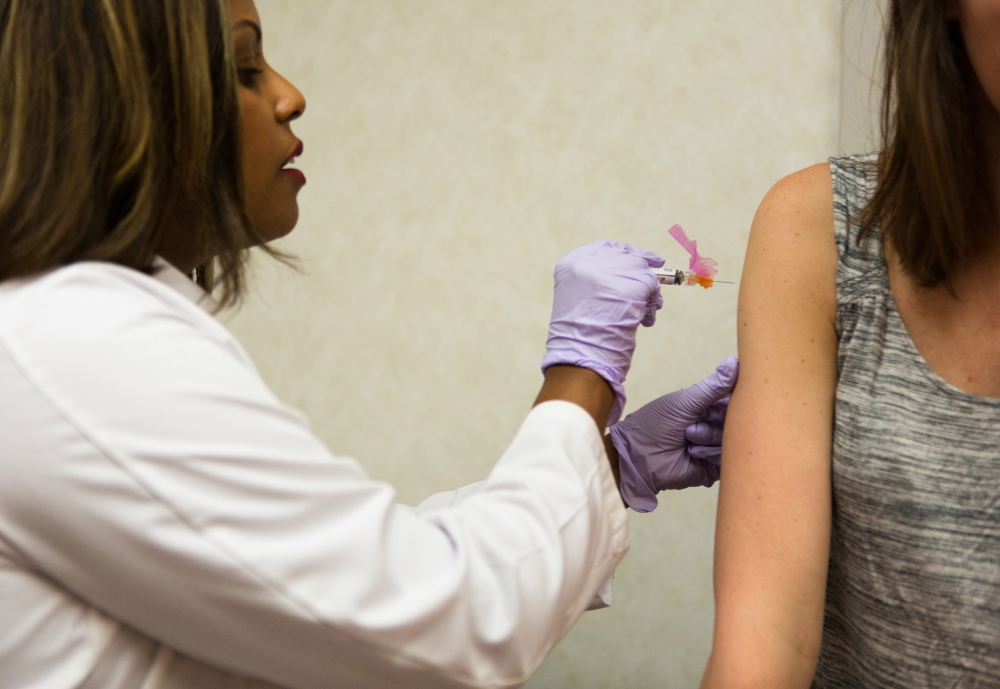WASHINGTON — The tradition and inconvenience of appointment-based health care is under attack across America.
A growing number of walk-in health clinics, with late-night and weekend hours, onsite prescription drugs and cheaper prices, are proving a hit with busy patients who’ve grown tired of getting medical treatment when it’s most convenient for doctors.
Walk-in clinics include the nation’s 1,900-plus retail health clinics and more than 6,400 urgent care centers.
Most urgent care centers are freestanding facilities run by private equity investors, hospitals, insurers or small independent outfits with one or two locations. Larger corporate groups, like Concentra and US Healthworks, operate several hundred outlets.
Retail clinics, located in pharmacies, supermarkets and big-box retailers, are dominated by a few large corporate players like CVS Health’s MinuteClinic, Walgreens’ Healthcare Clinic and The Little Clinic located in some food stores.
Cost-conscious patients facing higher health plan deductibles have helped make walk-in clinics one of the fastest growing sectors in the health care market. With no appointments required and most insurance coverage accepted, advocates say the clinics bring a patient-first consumerism to the nation’s outmoded health care delivery system.
“And people are liking that. This hasn’t existed before. Because most of health care was organized around what was convenient for the doctor,” said Tom Charland, CEO and founder of Merchant Medicine, a consulting firm that follows the walk-in health sector.
But family doctors and pediatricians have expressed concern about the quality of care that some retail clinics provide. Others say walk-in clinics interrupt long-term “continuity of care.”
Urgent care centers handle non-life-threatening ailments and usually have a doctor on site. They provide X-rays, apply casts and typically treat injuries like sprains, falls, broken bones and wounds that require stitches.
Retail clinics, staffed by nurse practitioners and physician assistants, provide non-emergency care, including vaccinations, physicals and screenings for routine illnesses.
Some retail clinics also help manage chronic conditions such as asthma, diabetes and high blood pressure, a development that has drawn the ire of the American Academy of Family Physicians.
“This kind of foray into chronic disease management is problematic because it really fragments patient care” by utilizing multiple caregivers that may not share patient information, said Dr. Wanda Filer, the academy’s president-elect.
The American Academy of Pediatricians has advised parents not to bring their children to retail clinics.
But part of the problem is that 40 percent to 50 percent of retail clinic patients don’t have a primary care physician.
“The reality is there’s a lot of people who are medically homeless,” said Dr. Andrew Sussman, president of MinuteClinic and associate chief medical officer at CVS Health.
Retail clinics have grown from 258 in 2007 to more than 1,900 this year.
Send questions/comments to the editors.



Success. Please wait for the page to reload. If the page does not reload within 5 seconds, please refresh the page.
Enter your email and password to access comments.
Hi, to comment on stories you must . This profile is in addition to your subscription and website login.
Already have a commenting profile? .
Invalid username/password.
Please check your email to confirm and complete your registration.
Only subscribers are eligible to post comments. Please subscribe or login first for digital access. Here’s why.
Use the form below to reset your password. When you've submitted your account email, we will send an email with a reset code.